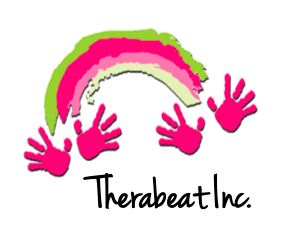Aphasia is a language disorder that often results from brain injuries such as strokes, head trauma, brain tumors, or infections. It occurs when key brain areas responsible for speech processing and production—such as Wernicke’s and Broca’s areas—are damaged. This condition affects an individual's ability to produce and comprehend speech, as well as their reading and writing skills, leading to varying degrees of communication difficulty. The severity of aphasia can range from mild challenges to cases where verbal communication becomes nearly impossible.
Growing evidence suggests that music therapy can support individuals with neurological disorders in improving their communication skills. Singing, in particular, has been found to be beneficial for individuals with aphasia due to several factors: (1) it is an innate human ability, (2) it shares overlapping neural networks with speech, (3) it engages broader neural circuits that may remain functional after a stroke (Pillay & Dunay, 2017). These insights contributed to the development of Melodic Intonation Therapy, a structured, music-based rehabilitation approach used to treat language disorders.
Melodic Intonation Therapy (MIT) utilizes musical elements to aid speech recovery by helping individuals form and organize words into sentences. It facilitates speech production by reinforcing the connection between sounds, word structures, grammar, and vocabulary.
With the support of a music therapist, patients undergoing MIT first practice maintaining the rhythm of spoken phrases initially sung by the therapist. They then attempt to replicate these phrases while preserving prosody, intonation, and rhythm. As therapy progresses, the therapist gradually reduces their support, and the patient transitions away from using musical cues. The ultimate goal of MIT is to help individuals regain natural, independent speech.
In a study led by Popescu et al. (2022), Melodic Intonation Therapy (MIT) was found to be effective in improving language expression in individuals with post-stroke aphasia, particularly in tasks like repetition of words and phrases. The therapy was shown to have a small to moderate effect on non-communicative language expression, meaning it helped patients in tasks where they had to produce speech without necessarily engaging in everyday conversation. MIT was most effective when it focused on speech repetition, and the study noted that spontaneous recovery (the natural improvement that occurs with time after a stroke) could influence the results.
-Asila Folds, Music Therapy Intern
References:
Pillay, S. B., & Dunay, M. (2017). Aphasia and the neural basis of language impairment. International Journal of Neuroscience, 127(11), 993–1002
Haro-Martínez, A., et al. (2021). Melodic intonation therapy for post-stroke non-fluent aphasia: A systematic review and meta-analysis. Frontiers in Neurology, 12, 700115
Popescu, T., et al. (2022). Melodic intonation therapy for aphasia: A multi-level meta-analysis of randomized controlled trials and individual participant data. Annals of the New York Academy of Sciences, 1484(1), 130-148.

